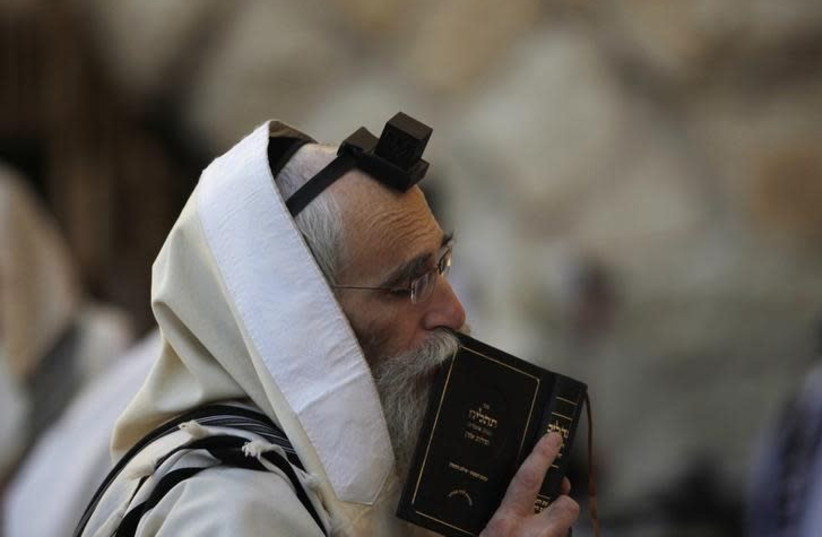A young man – actually, a youngster – wanted to know more about God. His father, a friend, is a gentile. He and his former wife, the youngster’s Jewish mother, agreed with the youngster’s wish that he be raised as a cultural Jew. The father asked me (of all people) to meet with the boy, hoping to help steer him toward the path that had thus far apparently eluded him.
The youngster surprisingly offered that he was experiencing “a hole in my soul.” It’s odd for a 13-year-old to express his torment if that’s what it is, in that way about something so intangible. When I was 13, the only hole in my soul was because the Brooklyn Dodgers had abandoned us for Los Angeles.
Yes, my yeshiva classmates and I were indoctrinated at the time by our rabbis that we had a soul – whatever that really means, or meant to us at the time. More ingrained in us were the pious technicalities, as I often cynically call them, of religious life, such as observing the imposing dictates of Shabbat with no TV and no baseball; the restrictive aspects of kashrut that become largely second nature; the disciplining nature of organized prayer; and the sometimes oppressive aspects of Talmud study that hardly presented as leading, by virtue of such study, to a more meaningful life – my obliviousness to that reality, notwithstanding.
Because much of this observance was rote in nature, in retrospect there certainly wasn’t passion implicated. No uncertainty. No doubt. No despair. And, naturally, we – at least, I – didn’t know better. Was there actually soulfulness in complying with the affirmative and injunctive obligations of religious observance?
Yes, God was at the heart of it all, as we were unambiguously taught. It was God, needless to say, who demanded the personal sacrifices required by these commandments – no ifs, ands, or buts. That is, it was all driven by a God whose temper is more imposing than mankind. He would simply abandon us if we didn’t adhere to them. No better lesson for that than the Temple’s destruction – twice.

I WOULD hardly tell the youngster something like that, though. Indeed, I wanted to help – albeit in a truthful way. So I looked him in the eye across the table and told him that one’s belief often tends to morph, as has occurred in my case. He looked back at me with curiosity. For me at least, it evolved from a rote-like adherence to technical aspects of ostensible religiosity into the more intellectual or philosophical aspects of belief.
Meaning, how do I, individually, perceive my engagement with God (and fill the hole in my soul)? I, for one, don’t concern myself so much any longer with how my fellow Jews see me and whether I toe the line to their satisfaction regarding the imposing dictates of the religion.
Different beliefs in Judaism
Many observant Jews today seem more troubled with whether their neighbors see them as derelict in their observances than with own their idiosyncratic relationships with God. I often wonder whether, for many, belief in God means blind adherence to the rules and little more and virtually nothing about “What does my believing in God really mean to me?”
“Those who believe that they believe in God, but without passion in their hearts, without anguish in mind, without uncertainty, without doubt, without an element of despair even in their consolation, believe only in the God idea, not God Himself.”
Spanish essayist Miguel de Unamuno
I recently came upon an intriguing quotation from the famed Spanish essayist Miguel de Unamuno, “Those who believe that they believe in God, but without passion in their hearts, without anguish in mind, without uncertainty, without doubt, without an element of despair even in their consolation, believe only in the God idea, not God Himself.”
It would probably be too hard, even foolhardy, to discuss the meaning of what Unamuno says here with any 13-year-old, even one with the kind of intense religious background that this youngster currently lacks.
Or is it the other way around? Is it too late for many of us who were bombarded with the party line of what one’s religious life – i.e., what our relationship with God – should encompass, to be able to convert, for lack of a better term, to what Unamuno argues for?
And finally, is Unamuno right about it anyway? Do we, each of us, believe in God or only the idea of God?
The writer, a frequent author, practices white-collar criminal defense law at Stroock & Stroock & Lavan in New York and is the author of Moses: A Memoir (Paulist Press 2003).
